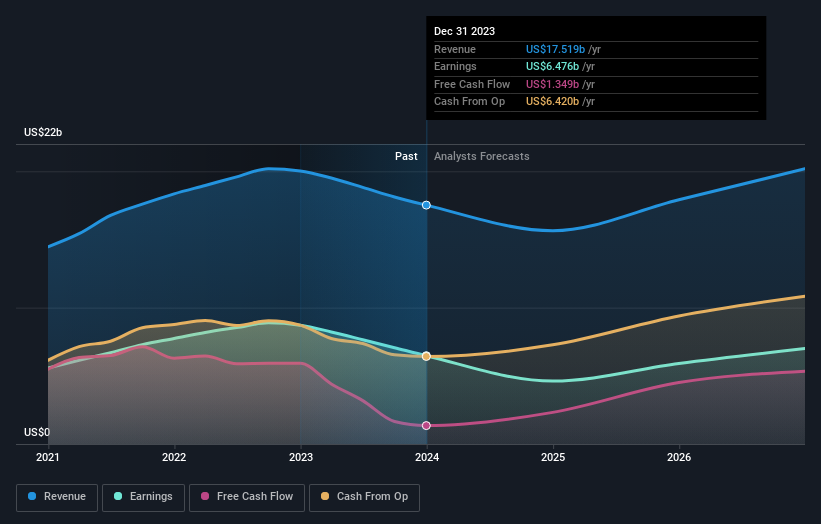Is It Time To Consider Buying Texas Instruments Incorporated (NASDAQ:TXN)?
Texas Instruments Incorporated TXN | 193.50 | +1.26% |
Today we're going to take a look at the well-established Texas Instruments Incorporated (NASDAQ:TXN). The company's stock saw a double-digit share price rise of over 10% in the past couple of months on the NASDAQGS. The recent share price gains has brought the company back closer to its yearly peak. With many analysts covering the large-cap stock, we may expect any price-sensitive announcements have already been factored into the stock’s share price. But what if there is still an opportunity to buy? Let’s take a look at Texas Instruments’s outlook and value based on the most recent financial data to see if the opportunity still exists.
Check out our latest analysis for Texas Instruments
Is Texas Instruments Still Cheap?
According to our price multiple model, which makes a comparison between the company's price-to-earnings ratio and the industry average, the stock price seems to be justfied. In this instance, we’ve used the price-to-earnings (PE) ratio given that there is not enough information to reliably forecast the stock’s cash flows. We find that Texas Instruments’s ratio of 24.29x is trading slightly below its industry peers’ ratio of 29.06x, which means if you buy Texas Instruments today, you’d be paying a reasonable price for it. And if you believe Texas Instruments should be trading in this range, then there isn’t much room for the share price to grow beyond the levels of other industry peers over the long-term. Although, there may be an opportunity to buy in the future. This is because Texas Instruments’s beta (a measure of share price volatility) is high, meaning its price movements will be exaggerated relative to the rest of the market. If the market is bearish, the company’s shares will likely fall by more than the rest of the market, providing a prime buying opportunity.
What kind of growth will Texas Instruments generate?

Investors looking for growth in their portfolio may want to consider the prospects of a company before buying its shares. Buying a great company with a robust outlook at a cheap price is always a good investment, so let’s also take a look at the company's future expectations. However, with a relatively muted profit growth of 8.0% expected over the next couple of years, growth doesn’t seem like a key driver for a buy decision for Texas Instruments, at least in the short term.
What This Means For You
Are you a shareholder? TXN’s future growth appears to have been factored into the current share price, with shares trading around industry price multiples. However, there are also other important factors which we haven’t considered today, such as the financial strength of the company. Have these factors changed since the last time you looked at TXN? Will you have enough conviction to buy should the price fluctuate below the industry PE ratio?
Are you a potential investor? If you’ve been keeping tabs on TXN, now may not be the most advantageous time to buy, given it is trading around industry price multiples. However, the positive growth outlook may mean it’s worth diving deeper into other factors in order to take advantage of the next price drop.
So if you'd like to dive deeper into this stock, it's crucial to consider any risks it's facing. To help with this, we've discovered 2 warning signs (1 is a bit concerning!) that you ought to be aware of before buying any shares in Texas Instruments.
If you are no longer interested in Texas Instruments, you can use our free platform to see our list of over 50 other stocks with a high growth potential.
This article by Simply Wall St is general in nature. We provide commentary based on historical data and analyst forecasts only using an unbiased methodology and our articles are not intended to be financial advice. It does not constitute a recommendation to buy or sell any stock, and does not take account of your objectives, or your financial situation. We aim to bring you long-term focused analysis driven by fundamental data. Note that our analysis may not factor in the latest price-sensitive company announcements or qualitative material. Simply Wall St has no position in any stocks mentioned.




